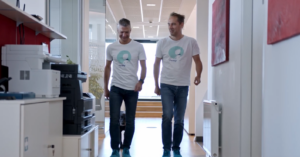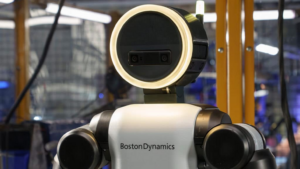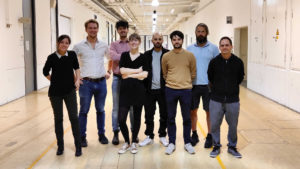Serbian Startup Ecosystem Cash Jab: Telekom Srbija Sets Up EUR 25 million VC

Telekom Srbija, Serbia’s state telco, announced plans to set up the country’s first venture fund to support startup ideas. The EUR 25 million VC will be the biggest such fund in the region, the telecom’s head Vladimir Lukic said.
“This will definitely be the biggest fund in the region. A venture capital fund is a standard financing tool where big corporations invest in startup and digital ideas. Our fund will be managed by a team of professionals we are actively recruiting in the US and Israel, countries that have huge experience in developing startup ideas,” Lucic told RTS.
The VC is expected to become operational by the end-June at the latest with the first actual idea financing expected in September.
The fund’s initial capital will be EUR 5 million a year over the next five years. In the initial phase, the financing available to individual startups will be between EUR 50,000 and EUR 100,000.
The fund will be mainly focused on supporting the Serbian ecosystem but there are plans to expand it across the region spreading from Slovenia to Northern Macedonia.
Serbian startup landscape at a glance
There are currently between 200 and 400 newly registered and active startups in Serbia, according to a recent estimate produced by the Austrian Economic Chamber. Most of them are concentrated in Belgrade (74%), with strong communities also found in Novi Sad and Nis. Some 78% of them work for international markets.
There is no unicorn in Serbia yet, but one of the biggest success stories in the tech sector so far is Frame. In 2018, the cloud-software company, which was six years old at that time, was acquired by US-based Nutanix in a $165M deal.
VC ecosystem still in a baby stage
In Serbia, the VC ecosystem still lags behind other Balkan countries that are EU members and have received funding from the European Investment Fund to start their first accelerators and early-stage funds.
For the past ten years, tech startups have raised as much as €143M of external funding, with €121M of them going to two companies, shows research by the Digital Serbia Initiative.
Most of the startups in the country are bootstrapped. There are, however, other financial and fiscal incentives for founders. For example, 80% of income from royalties, licensing, as well as 80% of capital gains from IP rights, are exempt from corporate income tax. There’s also a 30% corporate income tax credit (maximum EUR 850,000) for investments in innovative startups. On top, startup founders with up to nine employees do not pay income tax in the first year.
Government support channels
The government of Serbia has several programs in place aimed to promote the country’s innovation progress. One of them is the Mini-Grants program targeting early-stage Serbian startups that are developing innovative technology in a market with a clear need. The amount of financing tops up at €80k and the receiving end should provide at least 30% of the total project budget.
Then, there is the Collaborative Grant Scheme Program designed to support collaborations between public sector research organizations and private businesses. The maximum funding here reaches €300k with between 30 and 40% of the project budget covered by the lead applicant.
Another Serbian government initiative is innovation vouchers that enable SMEs to use the services of the public R&D sector, a technology transfer program to help scientists commercialize their inventions, and a proof of concept program that promises up to €20k for researchers who want to test and validate a product on the market.




























